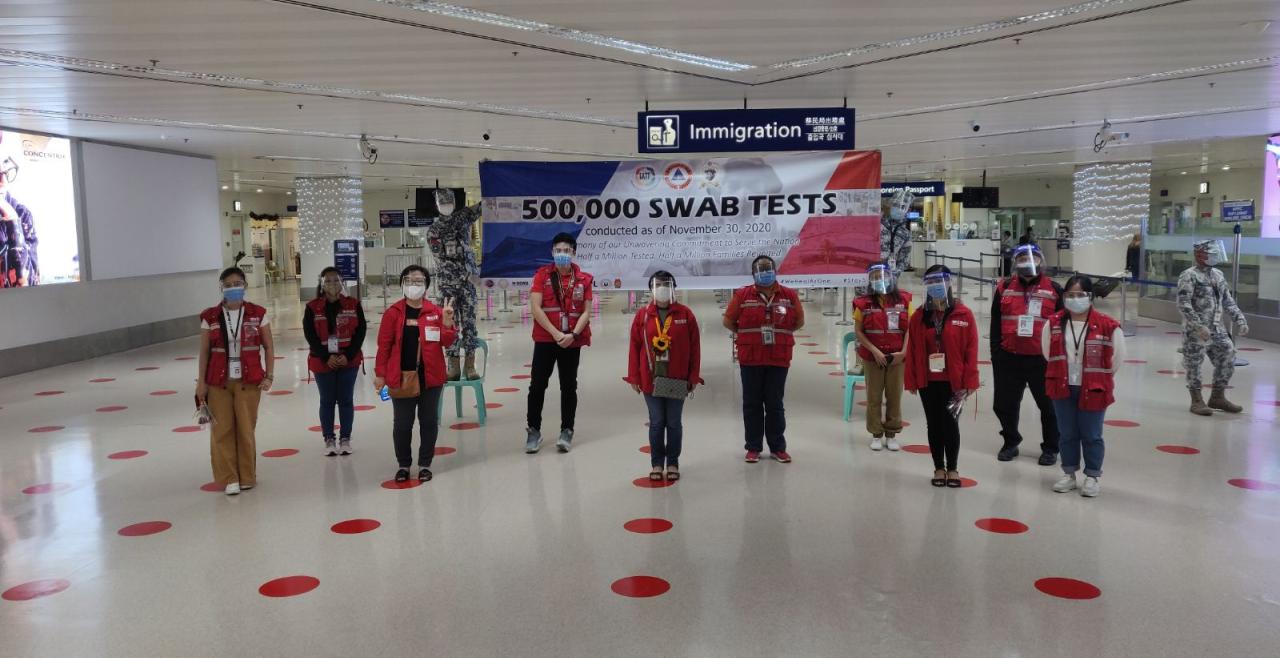Supporting women migrant workers experiencing sexual harassment at work

CORDILLERA ADMINISTRATIVE REGION, Philippines - Claire* is a 25-year-old Filipina who travelled to Dubai in July 2019 as a tourist. With no prospects of employment at home, she decided to stay on and look for a job to support her child and family.
When she was hired as a household worker, she was happy and looked forward to earning an income. What she didn’t expect was the sexual harassment that followed.
A year into her employment, while Claire was doing her chores, her employer’s husband took off his clothes in front of her. “When I saw my male employer undressing in front of me, I was so shocked by what he did,” says Claire. “Out of instinct, I immediately fled the room. When I told my amo (female employer) about what happened, she got very angry with me and accused me of lying. She told me to go to the ‘maid’s quarters’ and stay there. Later that night, I learned from my co-workers that my female employer had spoken to the police. She also confiscated my mobile phone.”
Afraid that she had been falsely accused of theft, Claire desperately wanted to return to the Philippines. “I felt very scared when I learned that my female employer talked to the police,” she says. “I did not want to go to prison… All I could think of was going home to be with my family."
“I felt very scared. I did not want to go to prison... All I could think of was going home." - Claire*, migrant domestic worker
Help is a phone call away
Of the 11.5 million migrant domestic workers around the world, 82 per cent are women (ILO, 2015). Domestic workers like Claire, who live in the private households of their employers, face a high risk of sexual violence, harassment, exploitation, non-payment of jobs and poor working conditions, according to International Domestic Workers Federation (IDWF).
This is why the Spotlight Initiative’s Safe and Fair Babaeng Biyahero (BB) helpline – which assists women migrant workers experiencing harassment and violence - is so critical.
Using a co-worker’s phone, Claire contacted BB to seek assistance. She also communicated with a BB social worker through Facebook Messenger. Although Claire’s passport had been withheld by her employers, she was able to send her iqama (residence permit) to the social worker along with the contact details of her family in northern Philippines. The social worker contacted Claire’s family on her behalf, informing them of her situation.
A few hours later, Claire’s co-workers contacted the social worker to let her know that Claire’s employers had sent her to the airport. They didn’t know what flight she’d be on and weren’t allowed to speak to her before she left. All they knew was that she had no money or mobile phone.
Without any way to communicate with Claire, the BB Team wrote to the Department of Foreign Affairs Office of the Undersecretary for Migrant Workers Affairs (DFA-OUMWA) and the Philippine Consulate in Dubai requesting assistance for Claire.
They also coordinated with the One-Stop Shop Team of the Department of Social Welfare and Development (DSWD) at the airport in Manila so that they could provide psychosocial support to Claire when she landed.
“When I finally met the social workers at the airport, I knew that I would be fine.” - Claire*, 25
Coming home
“I couldn’t sleep during the flight back to the Philippines,” says Claire. “I couldn’t believe that I was suddenly going home. I felt very sad that I had to leave behind my personal possessions and I didn’t know how to tell my family why I had to go home, but I am thankful that nothing terrible happened to me.
“When I finally met the social workers at the airport, I knew that I would be fine”.
Throughout the ordeal, the BB Team kept Claire’s family updated. When she arrived, Claire was brought to the hotel quarantine facility in Manila and stayed there until she was able to return home. The BB Team coordinated with the Overseas Workers Welfare Administration OWWA) and the Local Government Unit to ensure she made it back to her family safely, providing psychosocial support online every step of the way.
Today, Claire has been reunited with her family and is happy to be home. “I am moving forward,” she says.
She plans to work overseas again, but with a lot more support this time. “I am now applying to go to another country, with the help of my relatives who are living there,” she said.
By Faye Johanna Cura
*Name has been changed to protect the survivor’s identity.
